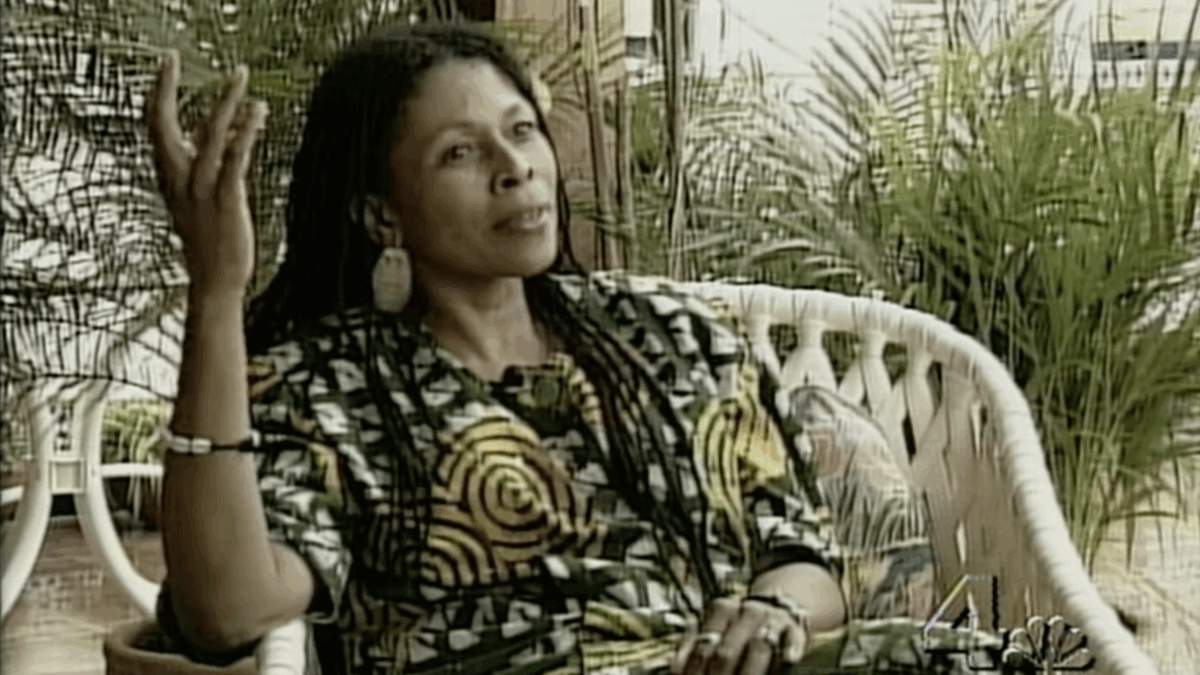 |
| Image Credit: NBC News/Youtube |
Media outlets and activists glorify Shakur as a revolutionary, but her life of crime and violence tells a far less heroic story.
On Saturday, the self-proclaimed champions of civil rights sprang from their newsrooms and classrooms to honor the passing of convicted murderer, terrorist, and “revolutionary” of the Black Liberation Army and Black Panthers, JoAnne Deborah Byron, commonly referred to as “Assata Shakur.”
The New York Times, among other left-leaning publications, took to X, mourning the death of 78-year-old Shakur, a “black revolutionary… [who] found sanctuary in Cuba for decades after escaping from a New Jersey prison… serving a life sentence in the 1973 shooting death of a state trooper.” The Times’ tweet included her obituary, which lauded the black militant communist as a heroic freedom fighter of the oppressed.
Shakur’s portrayal as a civil rights hero by the Left, driven by ideological DEI, misrepresents her legacy as a convicted felon and terrorist, excusing her crimes while reinforcing limiting racial stereotypes.
The leftist innate call for action beyond more measurable activism plays another part, which can be interconnected to ideological DEI. It’s an endorsement of violence based upon their justifications of a pseudopolitical morality grounded upon perceived social justice. It is adhered to as a righteous religion.
Under this premise, media outlets, including The Times, The Guardian, and CNN, sought to present a more palatable and humanizing narrative about Shakur. More conservative-leaning networks, like the Daily Mail, reported on the “leftist” hypocrisy that actually carried over to the Chicago Teachers Union’s X-account. It, too, honored Shakur, speaking on behalf of 30,000 educators. The post was not well-received, with an overwhelming ratio of 6,000 replies to a surprisingly high 3,800 likes.
Rest in Power, Rest in Peace, Assata Shakur. 🕊️
— Chicago Teachers Union (@CTULocal1) September 27, 2025
Today we honor the life and legacy of a revolutionary fighter, a fierce writer, a revered elder of Black liberation, and a leader of freedom whose spirit continues to live in our struggle.
Assata refused to be silenced. She taught… pic.twitter.com/SsoIg7MU8w
While media outlets and supporters glorify Shakur as a revolutionary, her life tells a far less heroic story. But what do people know about Shakur? I’d confidently assume very little besides the fact that she was godmother to slain rapper Tupac Shakur. Honestly, though, how could this FBI-designated terrorist be anyone’s choice as a hero or champion of anything?
In Shakur’s autobiography, she wrote that her teachers responded to her as if expecting her not to be intelligent. That is quite noteworthy. She also insisted that the education system sugar-coated the oppression of black Americans.
“I didn’t know what a fool they had made me out of me until I grew up and started to read real history,” Shakur wrote.
Her college life during the Vietnam War officially pulled her into politics, through general activism, and into where she sought ideological refuge — communism. Ironically, that may even describe much of the experiences of today’s college students. BestColleges surveyed the rise of collegiate activism in October 2024, finding that more than one in three students were actively involved with protests.
Returning to Shakur, in 1967, again, like most students of today, she became “woke” after three years of “academic enrichment.” She protested the underrepresentation of black faculty and black studies by chaining herself to the entrance of a Borough of Manhattan Community College building with 100 other students. Later, Shakur was arrested for trespassing. --->READ MORE HERE
If you like what you see, please "Like" and/or Follow us on FACEBOOK here, GETTR here, and TWITTER here.

No comments:
Post a Comment